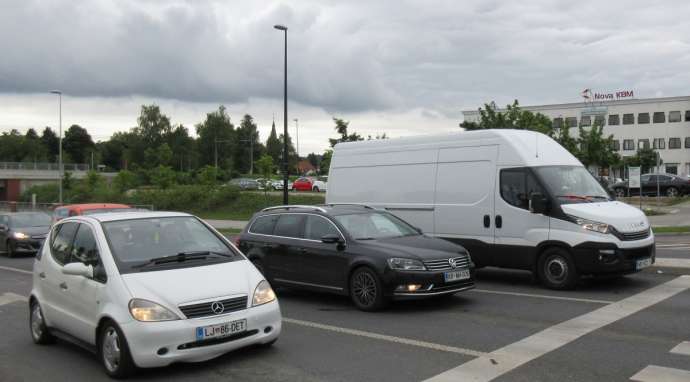STA, 17 July 2019 - The Constitutional Court has annulled legislation that allows police to use systems for automatic licence plate recognition, finding it contravenes the constitutional right to protection of personal data.
Acting on a petition by the Human Rights Ombudsman, the court annulled part of Article 113 of the police tasks and powers act, which was passed as part of legislative amendments in February 2017.
The contentious paragraph that was annulled provides that police may, for the purpose of ascertaining the conditions for the car and driver's involvement in road traffic, or search of persons and objects, use technical means for optical license plate recognition.
The paragraph also provides that the means need to be applied in a way that prevents mass surveillance or facial recognition.
The Constitutional Court held that the provision contravenes Paragraph 2 of Article 38 of the Constitution which says that any action pertaining to personal data, that is every step of their processing, collection, retention, access, transmission, analysis, comparison shall be provided by law.
The court noted that automatic license plate checks involve data collection and their checking against other personal data bases. Each data processing step would require to be specified by law individually.
Since the contentious provision does not specify, nor has the government provided a convincing explanation that other provisions in the act provide for the collected license plate data to be processed by means of automatic checking against other databases, the solution contravenes the requirement of Paragraph 2 of Article 38 of the Constitution.
The court will deliberate separately on other contentious issues in the law as argued by the ombudsman, including those concerning provisions on air passenger data and drones.
In the ombudsman's opinion automatic license plate recognition is disproportionate and allows mass surveillance.
The Constitutional Court also annulled parts of some other articles in the act that refer to the contentious provision.
Since the government has notified the court that the police have not put automatic plate recognition into use, the court did not deliberate on potential erasure of data collected in such a way.
Commenting on the decision, Interior Ministry State Secretary Sandi Čurin said that automatic license plate recognition had so far been implemented as a pilot project, and that all data collected would be erased.
Obviously, the police force and the Interior Ministry will respect the court's decision, said Čurin, but added that automatic license plate recognition contributed to road safety, so the ministry and the police would examine the possibility to enact the measure in some other way.
Ombudsman Peter Svetina welcomed the decision, but also noted that the court is yet to decide on other parts of the ombudsman's petition challenging several other provisions that were introduced into the police powers act in February 2017.







